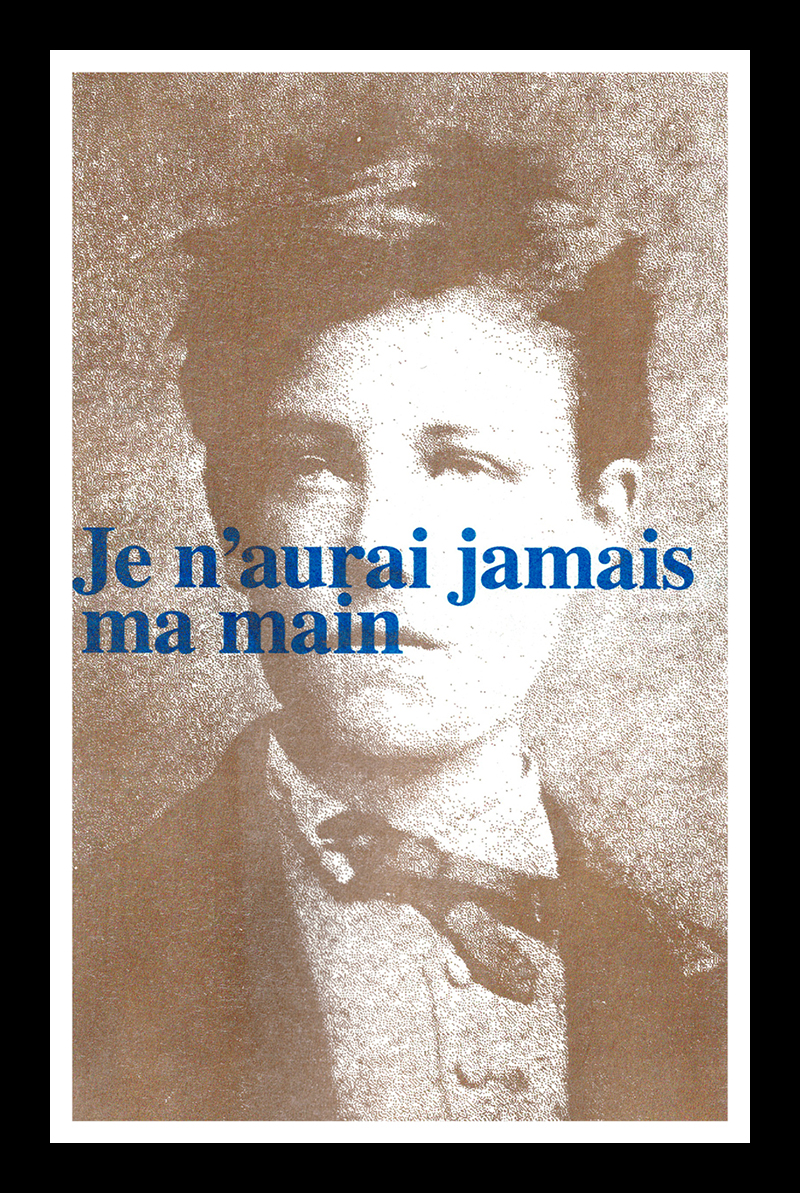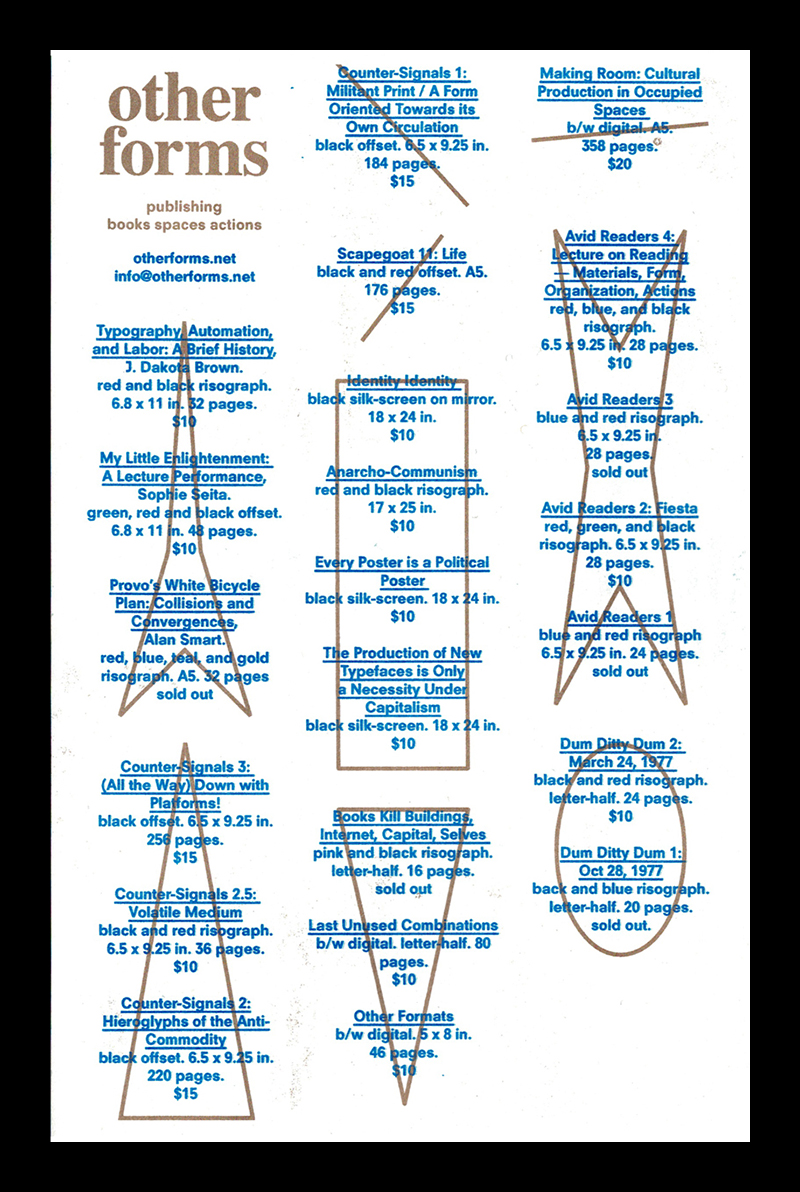Je n’aurai jamais ma main
other forms catalogue print Arthur Rimbaud
Writing is an activity of the hand as much as is plowing: the importance lies in the relation of the hand to a tool, even if the tool is as light as a pen. “je n’aurai jamais ma main,” which Paul Schmidt translates convincingly as “I will never learn to use my hands,” announces the will to resist participation in a society where workers’ activities—those of artists or farmers—are projected outside of and against them, in a work process in which the previous social labor, which has produced the tools, the pens, the plows, the language with which work is done, appears as a dead structure automatizing labor and worker at once. It is not work that forms the worker but only his or her expropriation—apprenticeship is “realized” only when work has become a power completely alien to the worker.
“je n’aurai Jamais ma main”: Rimbaud here indicates the will to resist that compromise solution of finding the contradictions of the objective structure to be complex and alienated but nonetheless manipulable. The poet, in fact, is identified with the instrumentally manipulated and dominated; if we understand “ma main” as in the expression “de la main de quelqu’un,” then “I will never have my signature,” my oeuvre: a body of artistic work that exists as an alienated or detached object. To have a metier, a trade, a specialty-even that of an antisocial metier like beggar or criminal (both professionals who “live by their hands”; in French, tendre la mam means “to beg”)—is to lose one’s hand as an integral part of one’s body: to experience it as extraneous, detachable, in service to the rest of the body as synecdoche for the social body, executing the wishes of another. To give birth to myself, to become my own work—by placing myself outside the regime of work I can remain intact: “Criminals are as disgusting as castrates: I’m intact and I don’t care.” Intact, which is to say, not castrated.
Kristin Ross, “Rimbaud and the Resistance to Work.” Representations, No. 19. (Summer, 1987), pp. 65.

letter-half
metallic gold and blue risograph